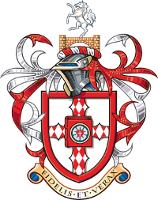Liberal Arts and Sciences Modules for 2025-26
The following is a list of modules which we plan to offer in the Academic Year 2025-26. A complete list of Module Descriptions is available to download. Note that not all modules can be offered every semester. If there is sufficient demand for a module not scheduled to be offered we may be able to make provision for it, provided there will be a sufficient number of students enrolled.
Autumn Semester (September-December)
English Literature
- British Science Fiction
- Shakespeare
History
- Pirates of the Caribbean and Beyond
- The European Reformations
Human & Social Sciences
- Life Worth Living: The Meaning of Life Across Different Traditions
Mathematics & Natural Sciences
- Introduction to Astronomy (3 US credits + 1 lab-based credit)
Music
- World Music
Philosophy & Hermeneutics
- Philosophy of Religion
Religious Studies & Theology
- Christian Doctrine
- Christianity and the Arts
- Introduction to the Old Testament
- Introduction to the New Testament
- Lutheran Confessions in Historical Context
- World Religions
Theological & Classical Languages
- Greek Readings
- Hebrew Readings
- Biblical Hebrew I
- New Testament Greek I
Winter Semester (January-April)
English Literature
- British Science Fiction
History
- The European Reformations
Human & Social Sciences
- Biopolitical Investigations
Mathematics & Natural Sciences
- Introduction to Astronomy (3 US credits + 1 lab-based credit)
Music
- World Music
Philosophy & Hermeneutics
- Philosophy of Religion
Religious Studies & Theology
- Lutheran Confessions in Historical Context
- New Testament Epistles
- World Religions
- Christianity and the Arts
Theological & Classical Languages
- Greek Readings
- Hebrew Readings

